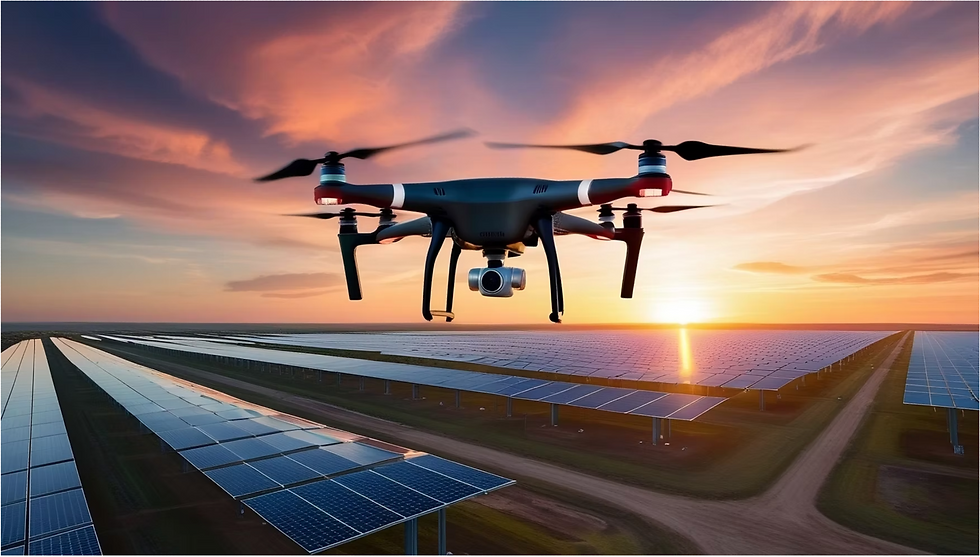Understanding AI and ML Essentials for Medical Assistants in Modern Healthcare
- Dr. Saran Lotfolahzadeh
- Jun 3
- 4 min read
In the fast-paced world of healthcare, understanding Artificial Intelligence (AI) and Machine Learning (ML) is no longer optional for medical assistants. As technology reshapes the way we deliver care, professionals in this field must grasp these concepts to stay current. This blog post breaks down AI and ML, highlighting their importance and application within healthcare in a way that's relevant to medical assistants.
What is Artificial Intelligence (AI)?
Artificial Intelligence refers to computer systems designed to simulate human thought processes. These systems enable machines to perform tasks that typically require human intelligence and expertise. For example, AI can recognize speech, analyze images, and make decisions based on data.
Think of AI as giving a brain to a computer. This capability enables machines to assist with complex tasks, resulting in enhanced efficiency and accuracy across various workflows.
What is Machine Learning (ML)?
Machine Learning is a branch of AI focused on the ability of systems to learn from data and improve their performance over time without needing explicit programming for each task.
For instance, in medical imaging, a computer trained on thousands of labeled X-ray images can develop the ability to discern patterns. This learning process enables it to predict the condition of new images, such as identifying potential tumors or fractures, with a level of accuracy that surpasses human capabilities.
AI in Everyday Life
AI has woven itself into the fabric of daily living in notable ways:
Smartphones: Features like voice recognition in Siri or Google Assistant demonstrate AI's ability to understand and respond to commands with remarkable accuracy. Research indicates that these voice assistants successfully comprehend commands about 90% of the time.
Cars: Many modern vehicles utilize AI technologies to enable advanced features, such as adaptive cruise control and collision warning systems, thereby significantly enhancing safety for both drivers and passengers.
Healthcare: In the medical field, AI is revolutionizing the diagnosis process, managing patient data, and improving workflow efficiency. Studies show that AI can reduce the time needed for radiologists to interpret images by up to 30%.
How Does AI Help in Healthcare?
The potential of AI in healthcare is broad and impactful. Here are a few significant applications:
Medical Imaging: AI assists radiologists in detecting tumors in X-rays and MRIs, improving diagnostic accuracy by up to 20%. For example, AI algorithms can flag suspicious areas for further evaluation, helping ensure timely treatment.
Patient Records: AI systems can analyze enormous amounts of patient data swiftly and accurately. Healthcare facilities that utilize AI have reported a 15% increase in timely medical decision-making due to the rapid retrieval and analysis of data.
Workflow Improvement: AI automates administrative tasks, such as appointment scheduling and sending medication reminders. This not only saves time but also reduces errors. Practices that adopted AI tools for these functions noted a 25% decrease in appointment no-shows.
For certified medical assistants (CMAs) trained in AI applications, these advancements allow for improved patient care and operational efficiency. They can effectively record and monitor patient vitals, assist with charting in Electronic Medical Records (EMRs), and flag abnormal lab results for follow-up.
Types of Learning in Machine Learning (ML)
Different learning methods in Machine Learning serve unique purposes:
Supervised Learning: In this method, the system is trained on data with known outcomes. For example, by teaching a computer to recognize a specific image of skin cancer, it can identify similar images in future evaluations, a critical step in dermatological assessments.
Unsupervised Learning: This involves systems analyzing data without predefined labels to discover patterns. For instance, by identifying clusters of patients with similar symptoms, healthcare providers can pinpoint conditions that may require further investigation and treatment. Recent studies have demonstrated that unsupervised learning can enhance the accuracy of patient assessments by identifying trends that might otherwise be overlooked.
What is Deep Learning (DL)?
Deep Learning stands as a more advanced subset of Machine Learning, leveraging multiple layers of neural networks. This approach enables AI systems to process vast amounts of complex data, resulting in high accuracy in tasks such as image recognition and sound analysis.
The sophistication of Deep Learning enables healthcare applications to glean insights from intricate data patterns, leading to more precise diagnostics and personalized treatment plans. Hospitals employing deep learning systems have seen diagnostic accuracy improve by as much as 30%, particularly in identifying conditions from imaging scans.
Embrace the Future of Healthcare
As AI and ML continue to evolve, their role in healthcare cannot be understated. Medical assistants equipped with knowledge in these technologies can enhance patient care, streamline workflows, and support better decision-making processes. Familiarity with AI and ML not only improves healthcare delivery but also positions medical professionals to thrive in a technology-driven environment.
Staying updated and developing skills in AI and ML will ensure that medical assistants are at the forefront of healthcare innovations, ultimately benefiting both providers and patients.
By Saran Lotfollahzadeh, MD, MSCR Candidate
Medical Director of CMA-AI at Training Center of Central Texas
#ArtificialIntelligence #MachineLearning #DeepLearning #HealthcareInnovation #MedTech #MedicalAssistantLife #CMATraining #MedicalAssistants #CMAEducation #FutureOfHealthcare #AIinHealthcare #DigitalHealth #HealthTech #ClinicalAI #SmartHealthcare #LifelongLearning #HealthcareCareers #TechInMedicine #UpSkill #MedicalEducation #BlogPost #HealthcareProfessionals #HealthCareTransformation #InnovationInCare #HealthcareFuture #CMAstudent #CMAlife #MedicalAssistantTraining #MedicalField #HealthcareSupport #DataDrivenCare #HealthIT #EHR #AIinMedicine #PatientCare






Comments